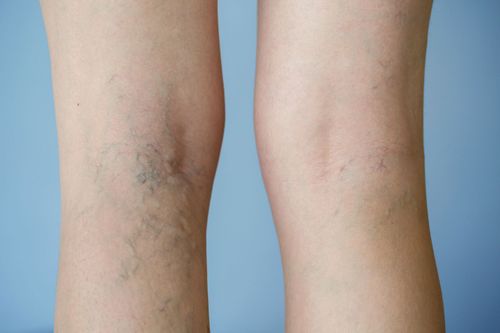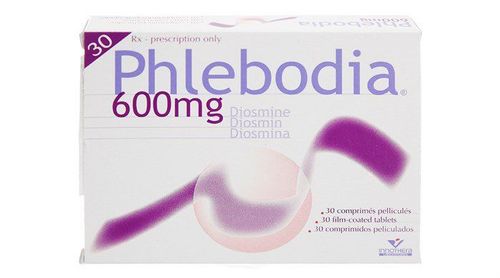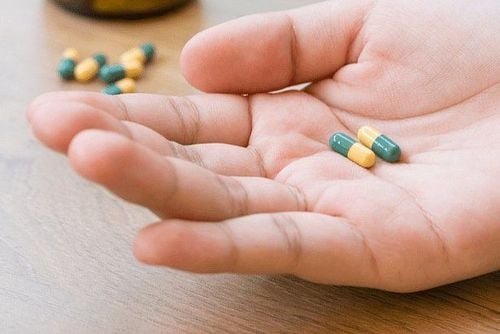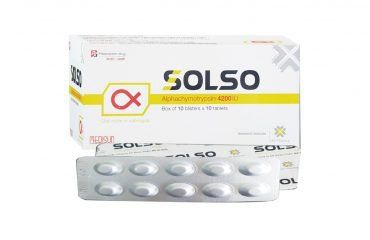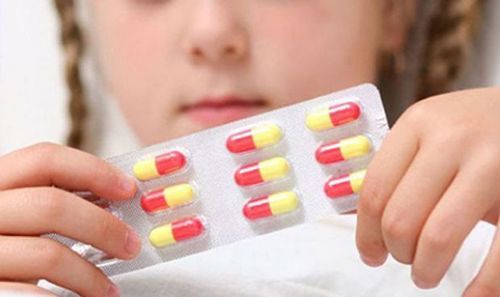This is an automatically translated article.
Edema is a condition in which fluid accumulates in the tissues or cavities of the body. Edema during cancer treatment is simply understood as the body's retention of water during cancer treatment. It may be related to certain chemotherapy drugs, some cancers in nature, and other conditions unrelated to cancer.
1. What is edema during cancer treatment?
Edema is defined as when the body accumulates water during cancer treatment in body tissues. There are many causes of edema in patients undergoing cancer treatment or with a history of cancer. Edema can be caused by the fluid-retaining cancer itself, or it can occur as a side effect of chemotherapy, hormone therapy, radiation therapy, or certain other medications such as steroids. Swelling with cancer can also be the result of a poor diet.
Edema can occur in many places on the body, most commonly in the legs and feet. Symptoms of edema are feeling puffy, new swelling, wearing tight clothing and jewelry, pitting skin when pressed, rapid weight gain, and low urine output.
Causes of swelling include:
Fluid retention, including salt and water related to medication, heart disease, liver disease or associated kidney failure. Obstruction of a vein or lymphatic system. Malnutrition . Chemotherapy-related, or cancer-related swelling: Some chemotherapy drugs can cause the body to retain water during cancer treatment. The cancerous edema is most noticeable in the feet, ankles, hands, and face. Swelling or angioedema may also occur with urticaria as part of an allergic reaction. It is a vascular reaction that causes some intracellular fluid to "leak" into the layers of the skin, leading to edema. This happens much less often than a mere rash. Water retention causes edema that usually appears on the tongue, lips, or eyelids. Edema of the airways can lead to difficulty breathing, respiratory failure, and even death. If swelling occurs along with signs of shortness of breath, seek help immediately.

2. What are signs of edema during cancer treatment?
Swelling with cancer can be observed in some patients based on features such as:
Swelling in the feet, ankles and legs. Swelling in the hands and arms. Facial swelling. Belly ass. Skin is plump, glossy, and slightly concave after pressing. Shortness of breath, cough, or irregular heartbeat. Patients need to notify the treating doctor or go to medical facilities when detecting one of the above signs. Your doctor will determine the cause of your swelling symptoms, advise you on steps to take, and may prescribe medication afterward.
Some of the problems associated with water retention during cancer treatment are serious. Call 911 or get medical help right away if you feel short of breath, have a different or irregular heartbeat, have sudden swelling or edema that gets worse, or are moving up your arm. or legs, rapid weight gain or no need to urinate, or only a small amount of urine.
Trắc nghiệm: Thử hiểu biết của bạn về bệnh ung thư
Ung thư là nguyên nhân gây tử vong hàng thứ 2 trên thế giới. Thử sức cùng bài trắc nghiệm sau đây sẽ giúp bạn có thêm kiến thức về yếu tố nguy cơ cũng như cách phòng ngừa bệnh ung thư.
Bài dịch từ: webmd.com
3. Ways to prevent or alleviate edema during cancer treatment
Steps you can take to prevent or reduce swelling caused by edema during cancer treatment include:
Wear loose-fitting clothes and shoes that aren't too tight. When you sit or lie down, elevate your legs with a stool or small pillow. Avoid crossing your legs when you sit. Ask your doctor about wearing special socks, sleeves or gloves if swelling is severe. Do specific exercises. Practice moving parts of the body that are swollen. The doctor can instruct the patient in specific exercises, including walking, to improve circulation. In addition, patients are also advised not to stand or walk too much during the day. Limit salt (sodium) in your daily diet. Avoid processed foods with a high salt content like chips, bacon, ham, and canned soups. Check food labels for sodium content. Do not add salt or soy sauce to food. Use drugs. If your doctor prescribes a medicine called a diuretic, take it exactly as directed. Medicines work to move excess fluid and salt out of the body. Talk to your doctor about edema during cancer treatment. Consider adding these questions to the list:
Are my medications or treatments likely to increase my risk of developing edema? What steps can I take to prevent edema? What symptoms or problems should I call my doctor? What steps can I take to feel more comfortable if I have swelling? Are there any foods, drinks or activities I should avoid? Do not forget to follow the website: Vinmec.com regularly to update many other useful information.
Reference articles: cancer.gov, yhocongdong.com




